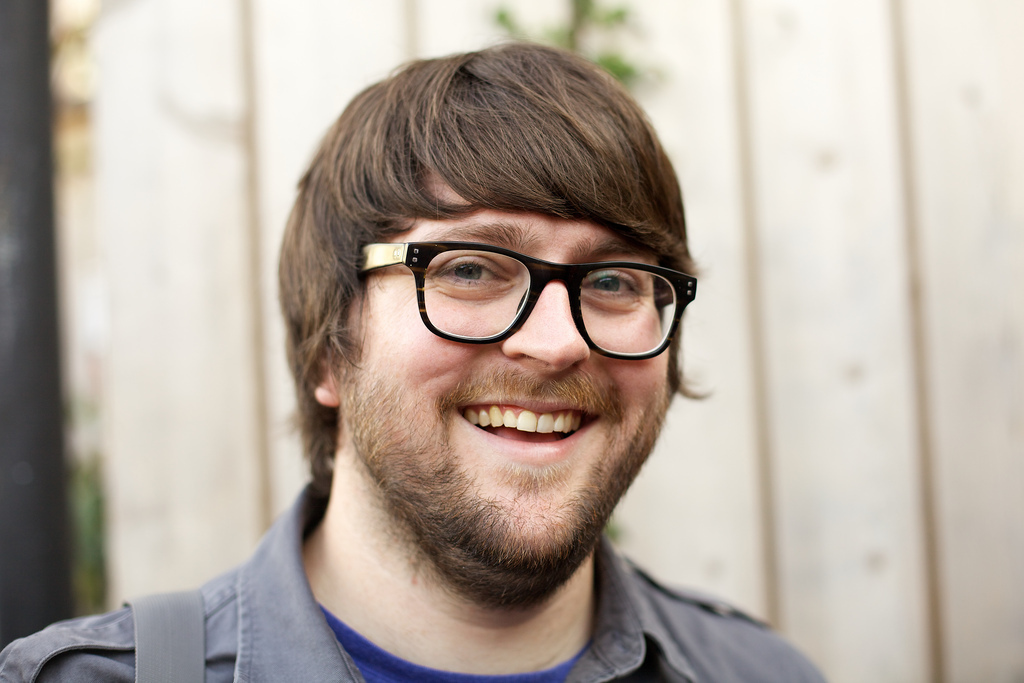Paravel at Play: An Interview With Dave Rupert
Dave Rupert is the lead developer at Paravel, a three-person web shop based in Austin, TX. We recently roped Dave into spending a few minutes talking about learning the hard way, the Shop Talk Show, and the new talk on prototyping and play he'll present at An Event Apart Atlanta.

How and where did you get your start in design, web or otherwise?
I started making websites in 1995. I was 15 and I think my first website was about farts. Building off that entrepreneurial endeavor, I started self-publishing online as an extension of a paper fanzine called Wimpkiller that I ran with my best friend, Michael Rice (@DadBeard).
It was Wimpkiller where I cut my teeth running a multi-site blog and forum for tens of friends. Hacks, data-loss, spam, designing and building out sites is where I learned a lot the hard way.
What was the biggest thing you learned the hard way?
The biggest thing I learned the hard way is that websites are actually mostly about people. It's somewhat trivial to smash together some code and make something “cool.” That's all for yourself, so making something “cool” is just an exercise in pleasing yourself. But when you're intertwined with clients, stakeholders, VPs, CEOs, product managers, co-workers…the other people element of websites is the hardest part.
What's a typical day like a Paravel, and how did you come by that name?
The name "Paravel" comes from one of C.S. Lewis' books. [From Cair Paravel, an ancient castle in The Chronicles of Narnia. —Ed.] Trent (@TrentWalton) liked it, and adopted it just before bringing Reagan (@raygunray) and me in to the mix.
A typical day at Paravel is pretty routine. Though we're only three people, we all work remotely. We all clock in at 9am and are out the door by 6pm. The morning is usually spent on Slack or Skype talking over current projects, sharing screenshots and ideas, arguing with each other, getting awkwardly quiet, and hopefully coming to a mutual understanding. It's not abusive or aggressive by any means, just all of us fighting to create the best website possible. Then the afternoon is left to knocking out individual tasks.
One a week we meet onsite at a client's office to sketch and “discuss” ideas in person. Those days are usually pretty good for short and long term planning as well.
Tell us about the origin and purpose of Shop Talk.
Shop Talk was born after listening to a lot of “Car Talk” on NPR. Back when we started there was a bit of a swell in long-format-interview style podcasts. These are great, I still listen to lots of interview podcasts, but I wondered if there was a way to show the more humorous side of our industry. Could you make the Car Talk of web design?
So I called the funniest guy I knew at the time, Chis Coyier, and he said “Yes!” Then we figured out how to rig up our soundboard and the rest is history. Our show ends up being about 15-20 minutes of “get to know our guest,” and then we simply talk shop for the rest of the hour answering listener submitted questions. We have a good time each week and I think if Chris or I ever find ourselves in the position where we aren't producing websites, we'll spin the show down, because at its core, it's a show about making websites for people who make websites by people who make websites.
You're giving a talk in Atlanta called “Prototyping and Play.” Sounds fun! What will attendees take away from it?
This talk is somewhat of an extension of my last couple years of work. In a nutshell, it's going to be about how to foster a spirit of “play" throughout your team through the use of prototypes. While “play” may sound inappropriate in the workplace, it's one of the secrets to Mihaly Csikszentmihalyi's concept of “Flow,” which has many team benefits. Prototypes have lots of potential in the workplace; they can help solve arguments during meetings; they can help convince upper management of a course of action; and I also believe that in this modern multi-device web, prototypes play an essential role in shipping a project.
I'll go through how we approach prototyping at Paravel, show some tools, share some failures, and if time allows, I'll attempt to code a prototype right before your very eyes!
What excites you most these days?
Pattern Labs are great. We have Flexbox in CSS now. Beyond that I've been getting into 3D video game programming and have an overwhelming interest in WebVR right now. Is it the future? Is it totally dumb? I really don't know, but it's fascinating to think about.
Dave Rupert will present “Prototyping and Play” at An Event Apart Atlanta 2015, February 17–19, along with eleven other brilliant speakers. Don't miss your chance to learn from the best—register today!